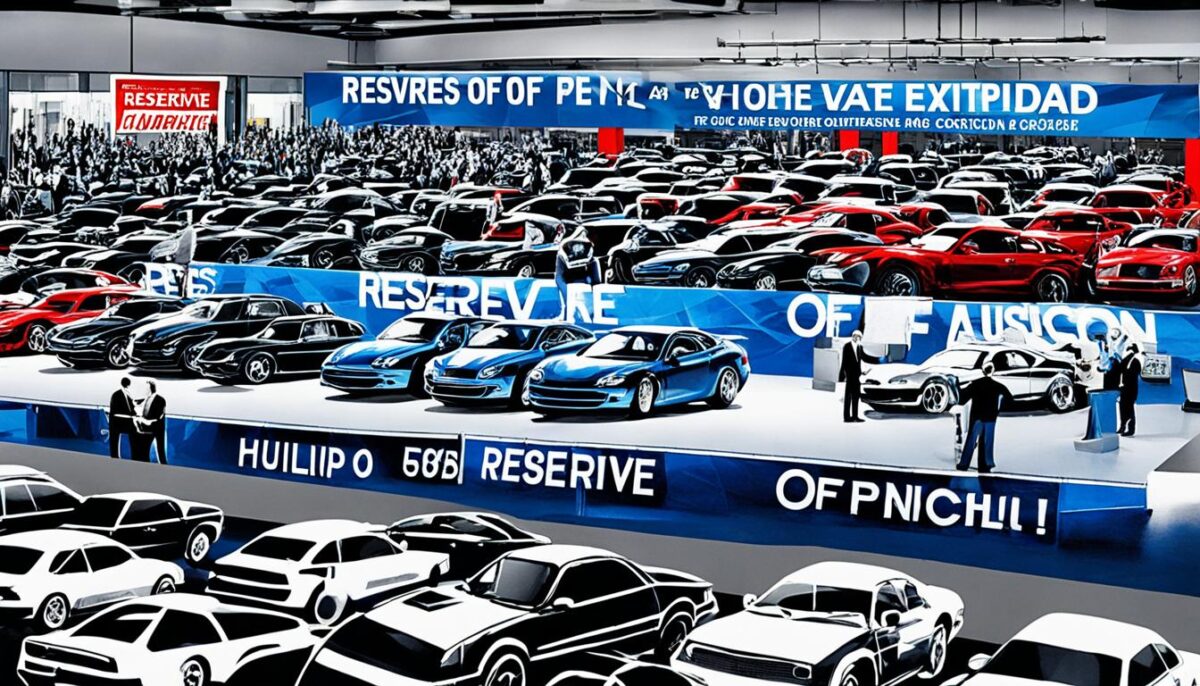In the dynamic world of car auctions, the term “reserve off” holds significant importance for both buyers and sellers. Understanding this concept is crucial for anyone navigating the complex auction environment. In this article, we’ll explore the meaning of “reserve off” and how it impacts the bidding process and overall outcome of a car auction.
At its core, “reserve off” refers to a car auction scenario where the seller has chosen to remove the reserve price, which is the minimum amount the seller is willing to accept for the vehicle. When a car is sold “reserve off,” it means that the highest bid, regardless of the amount, will secure the sale. This contrasts with traditional auctions where the seller maintains a reserve price that must be met or exceeded for the sale to be completed.
By removing the reserve price, sellers are essentially putting their vehicles up for true, unrestricted bidding. This strategy can be attractive to sellers who are motivated to sell their cars quickly or are confident in the market demand for their vehicles. Conversely, buyers may find “reserve off” auctions appealing as they offer the potential for acquiring a vehicle at a lower price than what the seller had initially set as the minimum acceptable amount.
Understanding the Concept of “Reserve Off” at Car Auctions
When attending a car auction, buyers may come across the term “reserve off” in the bidding process. This phrase holds significant implications for both buyers and sellers, and understanding its meaning is crucial for developing an effective auction strategy.
Defining “Reserve Off” in Car Auctions
In a traditional car auction, the seller typically sets a minimum price, known as the reserve price, which they are willing to accept for the vehicle. If the bidding does not reach this reserve price, the vehicle will not be sold. However, when a seller chooses to go “reserve off,” they are removing this minimum price requirement, allowing the vehicle to be sold to the highest bidder, regardless of the final bid amount.
Why Sellers Choose to Remove the Reserve Price
- To attract more buyer interest and potentially achieve a higher selling price: By going “reserve off,” sellers are signaling to buyers that they are willing to let the market determine the true value of the vehicle, which can lead to increased bidding and a higher final sale price.
- To expedite the sale process: Removing the reserve price can help sellers avoid the risk of the vehicle not selling if the bidding falls short of the minimum price, allowing them to complete the transaction more quickly.
- To create a sense of urgency and competition among buyers: The absence of a reserve price can heighten the competitive nature of the auction, as buyers know they must bid aggressively to secure the vehicle.
Understanding the concept of “reserve off” is crucial for both buyers and sellers navigating the car auction landscape. By being aware of this dynamic, participants can develop more informed auction strategies and make more bidding process decisions that align with their respective goals and risk tolerance.

Remember, the “reserve off” scenario represents a unique opportunity for buyers, as it removes the traditional price floor and allows them to potentially secure a vehicle at a lower price point. However, it also carries additional risks, as the final sale price may exceed the buyer’s intended budget or expectations. Careful reserve price and no reserve consideration is essential for a successful car auction experience.
What “Reserve Off” Mean Car Auction
When a car is sold at a “reserve off” auction, the bidding process unfolds differently than a traditional auction with a reserve price. In a “reserve off” scenario, the seller has chosen to remove the minimum price requirement, allowing the vehicle to be sold to the highest bidder, regardless of the final bid amount. This unique dynamic creates an opportunity for buyers to potentially secure a great deal, as they can win the vehicle for a lower price than they would have paid if the reserve price was in place.
How a “Reserve Off” Sale Works
At a “reserve off” car auction, the seller is willing to accept any price the market is willing to pay. Without a predetermined minimum price, the bidding process becomes more fluid and competitive. Buyers can bid aggressively, knowing that their final offer will determine the selling price, rather than being limited by a reserve. This scenario favors buyers, as they have the potential to acquire the vehicle at a lower cost than they would have in a traditional auction with a reserve price.
However, it’s important to note that sellers who choose to go “reserve off” may be willing to accept a lower price in exchange for the certainty of a sale. This decision is often driven by the seller’s desire to offload the vehicle quickly or a belief that the market conditions are favorable for a buyer’s market.
| Auction Type | Minimum Price | Buyer’s Advantage | Seller’s Advantage |
|---|---|---|---|
| Reserve Auction | Yes | Limited | Potential for higher sale price |
| Reserve Off Auction | No | Potential for lower purchase price | Guaranteed sale |
The “reserve off” auction dynamic highlights the interplay between buyers and sellers in the automotive market. While sellers may sacrifice potential profit to ensure a sale, buyers have the opportunity to capitalize on favorable market conditions and potentially secure a vehicle at a lower price.

“The ‘reserve off’ auction allows buyers to take advantage of a seller’s willingness to accept any price, creating a dynamic that can lead to significant savings for the savvy car shopper.”
Benefits and Risks of “Reserve Off” Car Auctions
Advantages for Buyers at “Reserve Off” Auctions
Participating in “reserve off” car auctions can offer several benefits for buyers. The lack of a reserve price means we have the opportunity to secure a vehicle at a potentially lower price than we would have paid if the reserve was in place. This can be particularly appealing for bargain-hunters and those looking to maximize their purchasing power.
However, the absence of a reserve price also introduces an element of uncertainty. Sellers may be willing to accept offers that are lower than what the vehicle is truly worth. As buyers, we need to be cautious and conduct thorough research to ensure we are making an informed decision and not overpaying for the vehicle.
Ultimately, “reserve off” auctions can be an attractive option for buyers, but we must approach them with a strategic mindset. By carefully evaluating the vehicle’s true value and market conditions, we can navigate these auctions effectively and potentially secure a great deal.



